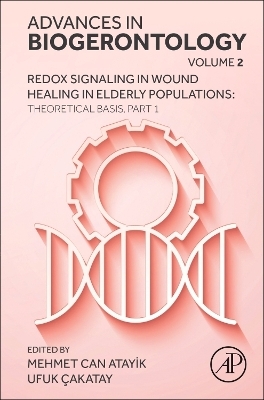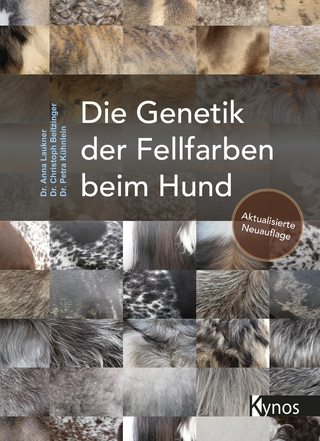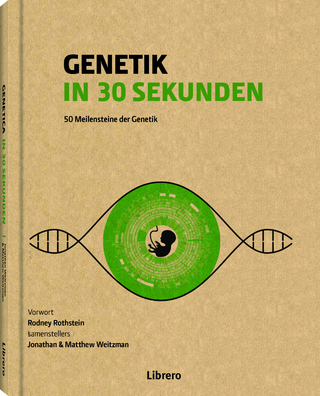
Redox Signaling in Wound Healing in Elderly Populations
Academic Press Inc (Verlag)
978-0-443-29456-3 (ISBN)
- Noch nicht erschienen (ca. November 2024)
- Versandkostenfrei innerhalb Deutschlands
- Auch auf Rechnung
- Verfügbarkeit in der Filiale vor Ort prüfen
- Artikel merken
Other chapters cover Redox state of aging skin: a double edge sword in wound healing, Redox signaling in pressure ulcers within older population: Role of the of antioxidants in their prevention and management, Redox signaling in intestinal mucosal wound healing, Postsurgical wound healing and redox signaling pathways in gastrointestinal system, Role of redox signaling on wound healing caused by vascular pathologies with aging, and much more.
Richard Faragher is Professor of Biological Gerontology at the University of Brighton and is past Chair of the British Society for Research on Ageing, the International Association of Biomedical Gerontology and the American Aging Association. He read Biochemistry at Imperial College, London and undertook doctoral studies on human premature ageing at the University of Sussex. His primary research interest is the relationship between cellular senescence and organismal ageing. He has published widely on the phenotype of senescent cells and on compounds that reverse the process. He holds the Royal Pharmaceutical Society Conference Science Medal for his work on the mechanisms of Werner’s syndrome, the Help the Aged ‘Living Legend’ award for his championship of older people, the Paul F Glenn Award for research into the mechanisms of ageing and the British Society for Research on Ageing’s highest honour, the Lord Cohen of Birkenhead Medal. Professor Faragher is a Fellow of the American Aging Association and has served as a member of the Research Advisory Council of the Charity Research into Ageing and on strategy and funding panels for the BBSRC, the US National Institutes on Ageing and the European Union. From 2005-2008 he was Co-director of the BBSRC-EPSRC SPARC programme, a research network designed to build national capacity to conduct inter-disciplinary ageing research. He is currently a Director of the American Federation for Aging Research, serves on the Scientific Advisory Board of the Longevity Vision Fund and co-directs the BBSRC-MRC funded Building Links in Ageing Science and Translation (BLAST) research network. Ufuk Çakatay (May 09, 1965 –) is a Turkish biochemist and biogerontologist. He is a full professor of medical biochemistry at Istanbul-University Cerrahpasa in Istanbul, Turkey. He has a long-standing interest in oxidative protein damage, redox signaling, and biomarkers of proteostasis. Much less is known about the relationship between redox signaling events and senescent cells. However, it has been shown that the number of senescent cells in many tissues increases with age and that senescent cells are found in various age-related diseases. The development of experimental animal models for age-related disorders and the optimization of various bioanalytical techniques for the assessment of redox status in aging tissue are among his major research interests. Professor Çakatay has authored more than 100 publications in several leading journals, including research papers, book chapters, editorials, and invited reviews on free radical biology, aging, diabetes, redox signaling, and senotherapeutics. He has been a guest editor, reviewer, and editorial board member for more than 50 journals. In addition, Professor Çakatay has a keen interest in mentoring medical students and promoting their research careers. He has received several prestigious awards, including the Top Reviewer Award from Elsevier Science Publishing, and was a former member of the Animal Research and Ethics Committee of Istanbul University. Dr. Mehmet Can Atayik is a medical doctor at Cerrahpasa Faculty of Medicine, Istanbul University-Cerrahpasa. He has been working as a scientist and researcher under the mentorship of Professor Ufuk Çakatay since 2017. His research interests are in the fields of aging, age-related disorders, redox biology, oncogenetics, melatonin, mitochondria, surgery, and tissue biochemistry. Doctor Atayik has conducted clinical research, and experimental studies. He has published many scientific papers such as research paper, narrative reviews, and book chapters, and worked as an author, referee, editorial assistant, guest editor, and editor in many prominent publishing houses. He was awarded the Young Investigator Presentation Prize in the VIII. International Congress of Molecular Medicine which was held in Istanbul-Turkey in November 2021.
1. Redox signaling in regenerative medicine: Mechanisms and therapeutic implications
Ali mohammad Sharifi and Tunku Kamarul
2. Age-related aspects of redox signaling cascades of wound healing
Arttatrana Pal, Golden Kumari and Monalisha Padhiary
3. Role of Nrf2 signaling in wound healing
Volodymyr I. Lushchak, Oleh Lushchak and Tetiana Dmytriv
4. Impact of senescence in impaired wound healing
Gabriel Méndez, Catalina Rojas-Solé, José Lillo-Moya and Ramón Rodrigo
5. Role of immunosenescence in impaired wound healing with age
Jan O. Nehlin, Juliette Tavenier, Line Jee Hartmann Rasmussen, Izzet Altintas and Ove Andersen
6. Targeting redox signaling pathway through integration of caloric restriction and wound healing process for enhanced repair
Abhishek Kumar Singh, Prachi Agarwal and Shweta Verma
7. CoQ10, more than an antioxidant in skin health and wound healing promotion
Guillermo López-Lluch Sr.
8. Redox state of aging skin: a double edge sword in wound healing
Qian Chen
9. Redox signaling in pressure ulcers within older population: Role of the of antioxidants in their prevention and management
Catalina Rojas-Solé, José Lillo-Moya, Víctor Pinilla-González and Ramón Rodrigo
10. Redox signaling in intestinal mucosal wound healing
Jan Homolak
11. Postsurgical wound healing and redox signaling pathways in gastrointestinal system
Anil Orhan
12. Role of redox signaling on wound healing caused by vascular pathologies with aging
Tamer Cebe, Bülend Ketenci and Fatih Kizilyel
13. Redox signaling and free radical mediated pathways in ocular diseases and tissue repair: Insights into the role of oxidative stress and redox signaling in retinal healing
Ahmad Kunbaz and Ahmad Alfaar
14. ROS-mediated redox signaling in diabetic wound healing
Mohammad Abdollahi
15. Nanotherapeutic approach for diabetic wound healing: Cross-talk between redox molecules
Fatma Hussain, Muhammad Asim, Saadiya Zia, Haroon Ur Rashid and Abdul Nasir
16. Cerium oxide based redox active antioxidant and anti-inflammatory biomaterial for wound healing applications.
Bihisham Narayan Singh
17. The redox signaling of ozone in wound repair in the elderly. Perspectives for a thorough review about oxygen-ozone adjunct therapy in traumatic and post-surgical wounds
Salvatore Chirumbolo
| Erscheint lt. Verlag | 1.11.2024 |
|---|---|
| Reihe/Serie | Advances in Biogerontology |
| Mitarbeit |
Herausgeber (Serie): Richard Faragher |
| Verlagsort | San Diego |
| Sprache | englisch |
| Maße | 152 x 229 mm |
| Themenwelt | Naturwissenschaften ► Biologie ► Genetik / Molekularbiologie |
| Naturwissenschaften ► Biologie ► Zellbiologie | |
| Naturwissenschaften ► Physik / Astronomie ► Atom- / Kern- / Molekularphysik | |
| ISBN-10 | 0-443-29456-9 / 0443294569 |
| ISBN-13 | 978-0-443-29456-3 / 9780443294563 |
| Zustand | Neuware |
| Haben Sie eine Frage zum Produkt? |
aus dem Bereich


